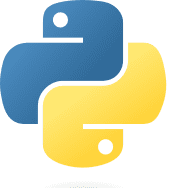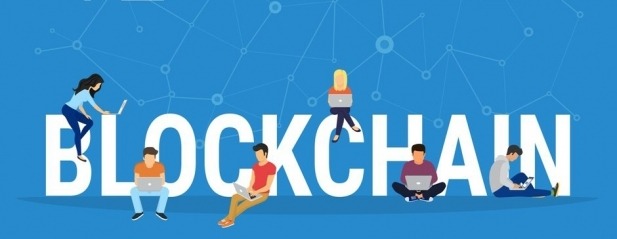Blockchain Jobs: Navigating the Future of Decentralized Technology
In the rapidly evolving landscape of technology, few innovations have captured the world’s attention quite like blockchain. This revolutionary technology has not only transformed the financial industry but has also given rise to a new wave of job opportunities that are as exciting as they are challenging. In this article, we’ll delve into the world of blockchain jobs, exploring what they entail and how you can position yourself to secure a role in this dynamic field.
The Rise of Blockchain Technology:
Before we dive into the realm of blockchain jobs, let’s briefly understand what blockchain technology is. At its core, blockchain is a decentralized and distributed digital ledger that records transactions across multiple computers in a secure and transparent manner. Originally designed for cryptocurrencies like Bitcoin, blockchain’s potential applications have expanded to various industries including supply chain management, healthcare, real estate, and more.
Exploring Blockchain Jobs:
Blockchain technology has given rise to a plethora of job opportunities across various industries. As the technology continues to evolve and gain adoption, the demand for skilled professionals in the blockchain space has surged. Here are the top 10 high-paying blockchain jobs that have emerged in recent years:
- Blockchain Developer: Blockchain developers are at the forefront of creating and maintaining blockchain networks, smart contracts, and decentralized applications (DApps). They work with programming languages like Solidity, C++, and Python to design and implement the underlying code that powers these systems. Due to the specialized nature of their work, blockchain developers are in high demand and command significant salaries.
- Cryptocurrency Developer: Cryptocurrency developers specialize in creating and maintaining digital currencies. They design the protocols, consensus mechanisms, and security features that underpin cryptocurrencies. This role requires deep technical knowledge of blockchain technology and cryptography.
- Smart Contract Developer: Smart contract developers focus on writing and deploying self-executing contracts that automate and secure transactions. These contracts are a crucial part of decentralized applications and platforms. Proficiency in languages like Solidity is essential for this role.
- Blockchain Architect: Blockchain architects design the overall structure of blockchain networks, ensuring scalability, security, and efficiency. They make critical decisions about consensus algorithms, data storage, and network topology to create robust blockchain ecosystems.
- Blockchain Consultant: Organizations often seek the guidance of blockchain consultants to strategize and implement blockchain solutions. These professionals provide expertise on how blockchain can streamline operations, enhance security, and drive innovation within a company.
- Blockchain Project Manager: Blockchain project managers oversee the development, testing, and deployment of blockchain solutions. They ensure that projects are delivered on time, within budget, and meet the specified requirements. This role requires a combination of technical knowledge and project management skills.
- Cryptocurrency Analyst: Cryptocurrency analysts research market trends, evaluate investment opportunities, and provide insights into the digital asset landscape. They help investors and businesses make informed decisions about cryptocurrencies and tokens.
- Blockchain Security Engineer: As cybersecurity becomes a top concern in the blockchain space, security engineers play a critical role in safeguarding blockchain networks from vulnerabilities and attacks. They design and implement security measures to protect blockchain systems from unauthorized access and breaches.
- Blockchain UX/UI Designer: User experience (UX) and user interface (UI) designers in the blockchain space focus on creating intuitive and user-friendly interfaces for decentralized applications and platforms. They ensure that users can interact with blockchain technology seamlessly.
- Blockchain Legal Consultant: With the evolving regulatory landscape surrounding blockchain and cryptocurrencies, legal consultants specializing in blockchain offer guidance on compliance, intellectual property rights, and regulatory challenges. They help organizations navigate legal complexities while embracing blockchain technology.
Also, read – Blockchain Could Help to Foster Global Jobs Creation
How to Enter the Blockchain Job Market:
The blockchain jobs market requires a strategic approach, a commitment to learning, and a passion for emerging technologies. Here’s a detailed guide on how to navigate your way into the blockchain job market:
1. Understand Blockchain Technology:
Before embarking on a career in blockchain, it’s crucial to have a solid understanding of the technology itself. Familiarize yourself with the basics, including what blockchain is, how it works, its use cases, and its potential impact on various industries.
2. Educational Foundation:
Start by building a strong educational foundation. While a formal degree is not always necessary, having a background in computer science, engineering, finance, or related fields can be advantageous. You can also take advantage of online courses, tutorials, and resources to learn about blockchain technology and its underlying principles.
3. Learn Relevant Skills:
Blockchain job roles require specific technical skills. Depending on the role you’re interested in, consider acquiring skills such as:
- Programming Languages: Depending on the blockchain platform, languages like Solidity (Ethereum), C++, JavaScript, Python, and Go might be essential.
- Smart Contract Development: Learn how to write, deploy, and interact with smart contracts.
- Decentralized Application (DApp) Development: Understand the process of creating decentralized applications that interact with blockchain networks.
- Cryptography: Gain knowledge of cryptographic techniques used to secure transactions and data on the blockchain.

4. Hands-on Experience:
Practical experience is invaluable in the blockchain job market. Create personal projects, participate in open-source initiatives, and contribute to blockchain-related platforms. Building your own blockchain applications or smart contracts can showcase your skills to potential employers.
5. Networking:
Networking is essential in any industry, and the blockchain sector is no exception. Attend conferences, workshops, meetups, and online forums related to blockchain technology. Engaging with professionals in the field can provide insights, guidance, and potential job leads.
6. Stay Updated:
Blockchain technology is rapidly evolving. Stay updated with the latest trends, developments, and updates in the blockchain space. Subscribe to newsletters, follow reputable blogs, and join online communities to keep abreast of changes.
7. Certifications:
Blockchain certifications can add credibility to your resume and demonstrate your expertise. Some notable certifications include:
- Certified Blockchain Developer (CBD): This certification covers blockchain development skills, including smart contracts and decentralized applications.
- Certified Ethereum Developer (CED): Focuses on Ethereum-specific development skills.
- Certified Bitcoin Professional (CBP): Provides a foundational understanding of Bitcoin and blockchain technology.
8. Tailor Your Resume:
Craft your resume to highlight your relevant skills, experience, and accomplishments in the blockchain field. Emphasize any practical projects, contributions, or certifications you have obtained.
9. Job Search:
Use job search platforms, company websites, and blockchain-focused job boards to find job openings in the blockchain sector. Look for roles such as blockchain developer, smart contract developer, blockchain analyst, etc.
10. Prepare for Interviews:
If you land interviews, prepare by researching the company, understanding their blockchain projects, and being ready to discuss your skills and experiences. Be prepared to showcase your portfolio, personal projects, and demonstrate your technical proficiency.
11. Freelancing and Contract Work:
Consider starting with freelancing or contract work. Many blockchain projects are open to remote collaboration, and these opportunities can help you build your portfolio and gain experience.
12. Continued Learning:
Blockchain technology is continuously evolving. Stay curious and committed to lifelong learning. As new developments arise, take courses, attend workshops, and engage in further education to stay competitive.
13. Adaptability and Flexibility:
The blockchain industry is still maturing, so be prepared for changes and shifts in job roles, technologies, and platforms. Adaptability and a willingness to learn will serve you well.
Entering the blockchain job market requires dedication, learning, and a proactive approach to skill development. By building a strong educational foundation, gaining hands-on experience, networking, and staying updated, you can position yourself as a qualified candidate in the exciting and rapidly growing world of blockchain technology.
Skills you can learn online in 2023 / 2024 to earn $20,000 + income in 1-2Years from:
• Blogging
• Web3 Jobs
• Video editing
• Forex Trading
• Content writing
• Web development
• Blockchain technology
• Crypto currency trading
• Coding and programming
•…
— Investor Ben (@_InvestorBen) August 18, 2023
In Conclusion:
Blockchain technology is reshaping industries and creating a demand for skilled professionals who can navigate its complexities. Whether you’re a developer, analyst, consultant, or manager, there’s a place for you in the world of blockchain jobs. By staying informed, building relevant skills, and seizing opportunities to learn and network, you can position yourself as a valuable asset in this transformative field.
Stay informed with daily updates from Blockchain Magazine on Google News. Click here to follow us and mark as favorite: [Blockchain Magazine on Google News].
Get Blockchain Insights In Inbox
Stay ahead of the curve with expert analysis and market updates.
latest from tech
Disclaimer: Any post shared by a third-party agency are sponsored and Blockchain Magazine has no views on any such posts. The views and opinions expressed in this post are those of the clients and do not necessarily reflect the official policy or position of Blockchain Magazine. The information provided in this post is for informational purposes only and should not be considered as financial, investment, or professional advice. Blockchain Magazine does not endorse or promote any specific products, services, or companies mentioned in this posts. Readers are encouraged to conduct their own research and consult with a qualified professional before making any financial decisions. The featured image used is just a creative depiction of the title and it does not intend to hurt sentiments of any person or institution. If it hurts anyone sentiments, please do not hesitate to reach out to Blockchain Magazine.

 Bitcoin
Bitcoin  Ethereum
Ethereum  XRP
XRP  Tether
Tether  Solana
Solana  USDC
USDC  Dogecoin
Dogecoin  Cardano
Cardano  Lido Staked Ether
Lido Staked Ether  TRON
TRON  Wrapped Bitcoin
Wrapped Bitcoin  Chainlink
Chainlink  Wrapped stETH
Wrapped stETH  Avalanche
Avalanche  Sui
Sui  Stellar
Stellar  Litecoin
Litecoin  Toncoin
Toncoin  Shiba Inu
Shiba Inu  Hedera
Hedera  LEO Token
LEO Token  USDS
USDS  Hyperliquid
Hyperliquid  Polkadot
Polkadot  WETH
WETH  MANTRA
MANTRA  Bitcoin Cash
Bitcoin Cash  Ethena USDe
Ethena USDe  Bitget Token
Bitget Token  Wrapped eETH
Wrapped eETH  Uniswap
Uniswap  Monero
Monero  NEAR Protocol
NEAR Protocol  Pepe
Pepe  WhiteBIT Coin
WhiteBIT Coin  Bittensor
Bittensor  Ondo
Ondo  Aave
Aave  Aptos
Aptos  Internet Computer
Internet Computer  Dai
Dai  Official Trump
Official Trump  Mantle
Mantle  Ethereum Classic
Ethereum Classic  OKB
OKB  Tokenize Xchange
Tokenize Xchange  Gate
Gate  sUSDS
sUSDS  Sonic (prev. FTM)
Sonic (prev. FTM) 






